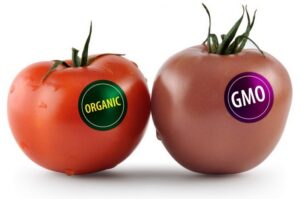
The Ukrainian parliament needs to resolve an issue of uncertainty in biotechnological activities and production of agricultural products containing genetically modified organisms (GMOs) at the legislative level, if the country chooses a course towards the liberalization of such products, the U.S. Department of Agriculture (USDA) is ready to help it.
“This is an initiative of Americans themselves. In Ukraine, there is uncertainty with GMOs and biotechnologies. That is, we have a law, but there are no by-laws, and this, in fact, creates a legal vacuum in this area. On the other hand, we have partially grown GMO crops – soy and rapeseed. So there needs to be some order. It is necessary to say ‘yes’ or ‘no’ to GMOs,” Chair of the Parliamentary Committee on Agrarian and Land Policy Mykola Solsky said in an interview with Interfax-Ukraine.
According to him, the USDA has offered its assistance to Ukraine if the parliament decides to liberalize the issue of GMO production in the country.
“Progress in this direction was planned even before the coronavirus pandemic. Therefore, for three days we arranged a meeting at the USDA with specialists leading all these programs,” Solsky specified the details of the trip of the Ukrainian delegation to the United States at the end of November 2021.
Solsky also said that about 80% of meat in the EU countries is produced from animals raised on GMO-containing feed, while GMO-containing fruits and vegetables are practically non-existent due to lack of demand.
“In Europe, there is no special philosophy about this. Americans do practical things that bring more money. It’s later, if the technology is so cheap that it can be used for eggplants, they will do it too. Therefore, GMO corn and GMO soybeans are the most consumed now – main carbohydrate and main protein, from which its development began. Now they are already working on GMO wheat,” the head of the committee said.
As reported, in August 2021, the Cabinet of Ministers supported the submission to the Verkhovna Rada of a draft law on state regulation of genetic engineering activities and control over the circulation of products with GMOs, this initiative is aimed at conducting a comprehensive review of existing legislation in the field of handling GMO products, and also allows to implement in Ukrainian legislation the normative acts in force in the EU.

The Cabinet of Ministers has supported the submission to the Verkhovna Rada of a draft law on state regulation of genetic engineering activities and control over the circulation of products containing genetically modified organisms (GMO), this initiative is conducting a comprehensive review of the existing legislation in the field of handling GMO products, and also allows implementing EU regulations in force in the Ukrainian legislation.
The government made the corresponding decision without discussion at a meeting on August 4.
“Imperfect legal regulation of GMO handling makes it impossible to effectively control the circulation of GMO products and creates conditions for the illegal use of unregistered GMO products. Thus, state regulation in the field of GMO handling should be revised, modernized and brought in line with EU legislation,” an explanatory note to the document reads.
This bill provides for the delineation of powers of the authorities to eliminate duplication of functions in the field of GMO circulation, improvement of the system for assessing the risks of the impact of GMOs on human health and the environment, the introduction of European mechanisms for state registration and labeling of products with GMOs, strengthening state control in the sphere of handling GMOs.
The bill introduces a new type of permits – “permits for the import of unregistered GMOs for carrying out genetic engineering activities in a closed system” with a gradation of the levels of risks they create from 1 to 4.
It is assumed that this bill will regulate the creation, labeling and use of GMOs and genetically modified products, control of compliance with legislation in this industry. In addition, the document prohibits the circulation of food products containing GMOs (or produced with their use) prior to the state registration of the corresponding source of origin of GMOs.